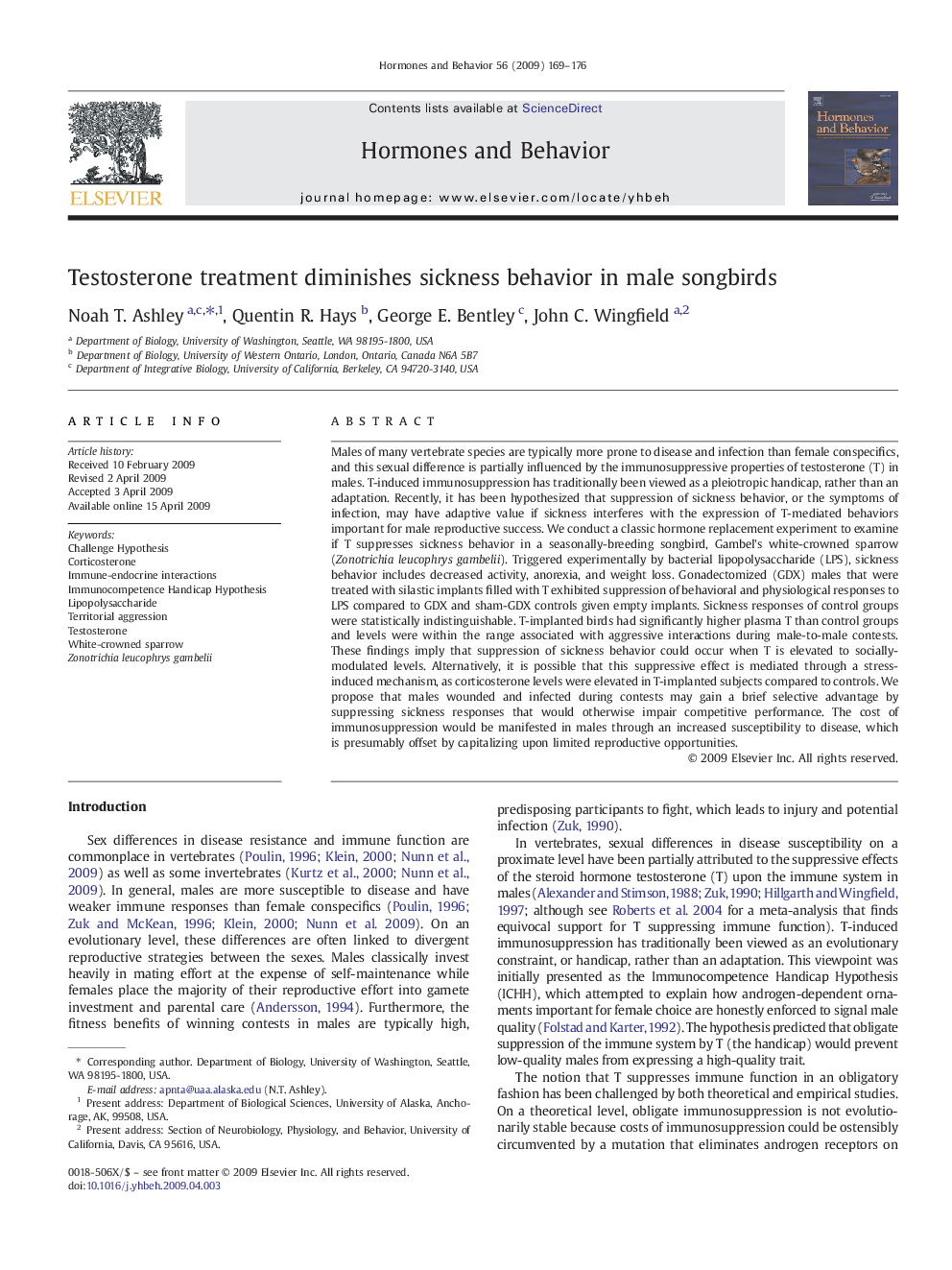| کد مقاله | کد نشریه | سال انتشار | مقاله انگلیسی | نسخه تمام متن |
|---|---|---|---|---|
| 10301553 | 540904 | 2009 | 8 صفحه PDF | دانلود رایگان |
عنوان انگلیسی مقاله ISI
Testosterone treatment diminishes sickness behavior in male songbirds
دانلود مقاله + سفارش ترجمه
دانلود مقاله ISI انگلیسی
رایگان برای ایرانیان
کلمات کلیدی
موضوعات مرتبط
علوم زیستی و بیوفناوری
بیوشیمی، ژنتیک و زیست شناسی مولکولی
علوم غدد
پیش نمایش صفحه اول مقاله

چکیده انگلیسی
Males of many vertebrate species are typically more prone to disease and infection than female conspecifics, and this sexual difference is partially influenced by the immunosuppressive properties of testosterone (T) in males. T-induced immunosuppression has traditionally been viewed as a pleiotropic handicap, rather than an adaptation. Recently, it has been hypothesized that suppression of sickness behavior, or the symptoms of infection, may have adaptive value if sickness interferes with the expression of T-mediated behaviors important for male reproductive success. We conduct a classic hormone replacement experiment to examine if T suppresses sickness behavior in a seasonally-breeding songbird, Gambel's white-crowned sparrow (Zonotrichia leucophrys gambelii). Triggered experimentally by bacterial lipopolysaccharide (LPS), sickness behavior includes decreased activity, anorexia, and weight loss. Gonadectomized (GDX) males that were treated with silastic implants filled with T exhibited suppression of behavioral and physiological responses to LPS compared to GDX and sham-GDX controls given empty implants. Sickness responses of control groups were statistically indistinguishable. T-implanted birds had significantly higher plasma T than control groups and levels were within the range associated with aggressive interactions during male-to-male contests. These findings imply that suppression of sickness behavior could occur when T is elevated to socially-modulated levels. Alternatively, it is possible that this suppressive effect is mediated through a stress-induced mechanism, as corticosterone levels were elevated in T-implanted subjects compared to controls. We propose that males wounded and infected during contests may gain a brief selective advantage by suppressing sickness responses that would otherwise impair competitive performance. The cost of immunosuppression would be manifested in males through an increased susceptibility to disease, which is presumably offset by capitalizing upon limited reproductive opportunities.
ناشر
Database: Elsevier - ScienceDirect (ساینس دایرکت)
Journal: Hormones and Behavior - Volume 56, Issue 1, June 2009, Pages 169-176
Journal: Hormones and Behavior - Volume 56, Issue 1, June 2009, Pages 169-176
نویسندگان
Noah T. Ashley, Quentin R. Hays, George E. Bentley, John C. Wingfield,